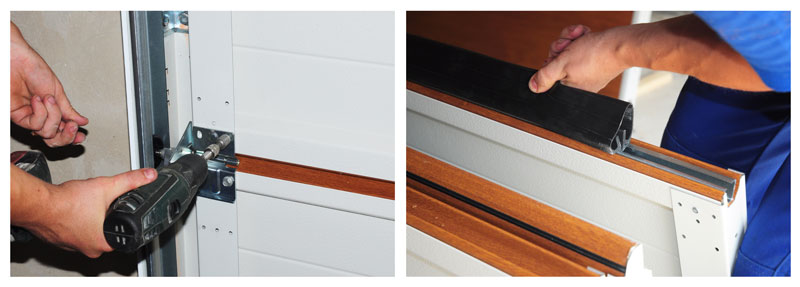Benefits Of Garage Door Insulation
A major benefit of garage door insulation is the increase in energy efficiency. If the garage door is insulated, it will keep the heat inside during the winter and prevent hot air from coming into the garage during the summer. Keeping your garage climate-controlled can reduce the energy used to keep your home warm or cool, specifically for homes with attached garages. A reduction in energy used can result in a decrease in cost.
Insulated garage doors are generally quieter than those doors that are not insulated. Insulation strengthens the doors, which helps them not to rattle or creak while in use and acts as a sound barrier. This is mostly beneficial if the garage door is used as a common entryway or highly occupied rooms next to or above the garage.
Insulated doors are made to resist harsh elements, such as the harsh winds of Indiana winters, especially with a quality ground-level seal and weather stripping around the edges. The insulation can help lengthen the lifespan of the garage door. As the insulation strengthens the door itself, it is less likely to be damaged by kids, vehicles, everyday use, and weather.
An insulated garage will also keep your car safer if you store it inside. The car will be less likely to freeze or be affected by the weather at all. Cold weather can greatly impact your car, and not in a positive way. A steady climate within your garage can also prolong the life of other items you keep in there. Fertilizers, motor oil, paint, and cleaning supplies are commonly stored in garages and can last longer inside an insulated garage.
Another major benefit is that insulated garage doors can make both your garage and home environment more comfortable. Cold drafts will be less likely to escape into your home, and the warm air will be better kept out during the summer. Garage door insulation could even make your garage comfortable enough to spend more time in, whether you want to make it into an arts and crafts room or work on that old car that’s been sitting in it no matter what the weather is like outside.
Garage Door Insulation Experts
Schedule your consultation by using our online form, or call us for service today!

